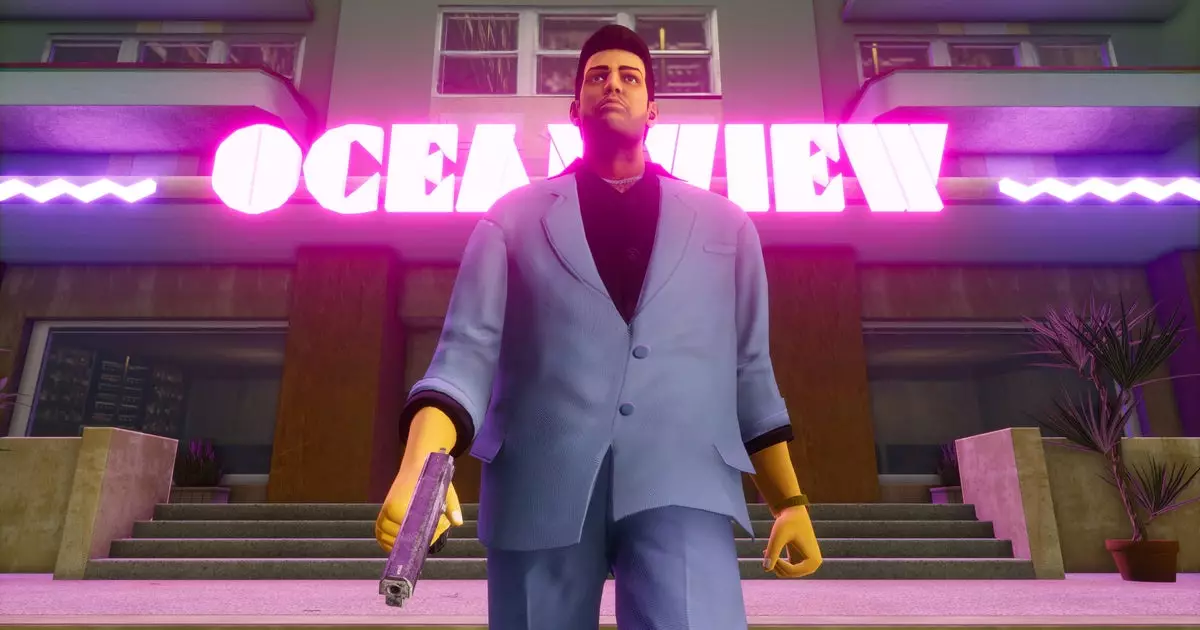When I think back to the early days of the Grand Theft Auto series, a wave of nostalgia washes over me, anchored by humorous moments that defined my youth. One standout episode occurred after school: my friend, in fits of laughter, decided to engage in a chaotic romp through the game’s virtual streets. It involved comically thwacking a downed police officer with a baseball bat in GTA 3. This ridiculous scenario encapsulates the unrestrained joy and absurdity that characterized these early gaming experiences. The chaotic freedom of exploring an open world was revolutionary, introducing players to a sense of agency rarely seen in video games of that era.
However, revisiting these titles today carries a bittersweet undertone. The recent backlash against Grand Theft Auto: The Trilogy – The Definitive Edition left many fans disillusioned. Despite the fond memories associated with earlier iterations of the franchise, the reimagined trilogy fell short of expectations, leading many to question whether a trip down memory lane was worth it. The introduction of cumbersome elements—such as the peculiar syntax in the game’s name—only further exemplifies the awkwardness that has arisen. An element of disappointment permeates the conversation around these earlier classics due to the negative reception these remasters received.
I can empathize with others who feel similarly apathetic; it’s challenging to rekindle that initial excitement when faced with dubious updates or poorly executed remasters. Rockstar’s attempts to breathe new life into these nostalgic titles haven’t been particularly effective, especially with the limited appeal of incremental visual tweaks like the recent ‘Classic Lightning’ mode, which is now available across various platforms.
The ‘Classic Lightning’ mode, initially introduced last year in collaboration with Netflix for mobile versions, aimed to evoke the ambiance of the original titles. The alteration appears to be an attempt to pacify long-time fans, but any enhancements cannot erase the disappointment surrounding the Trilogy’s quality. Furthermore, the recent reports about removing Grove Street Games from the splash screens are disheartening. Such gestures seem petty, hinting at a corporate culture that values profits over community and heritage.
In the midst of this uncertainty, Take-Two Interactive maintains a confident stance regarding the future of the franchise, with predictions pointing to a fall 2025 release for the next installment. For many gamers, the optimism surrounding new adventures in the Grand Theft Auto universe persists, contrasting sharply with the concerns about previous releases. Will the next chapter recapture the magic and irreverence that made the series a cultural phenomenon?
As we wait for what lies ahead, it’s essential to reflect on the past with both fondness and critical insight. The roller coaster of emotions tied to Grand Theft Auto’s evolution—from the exhilarating chaos of its early days to the mixed reviews of modern remasters—gives it an undeniably unique place in gaming history. While nostalgia is a powerful force, it’s vital for developers to honor the legacy of their past while charting an innovative path forward.

